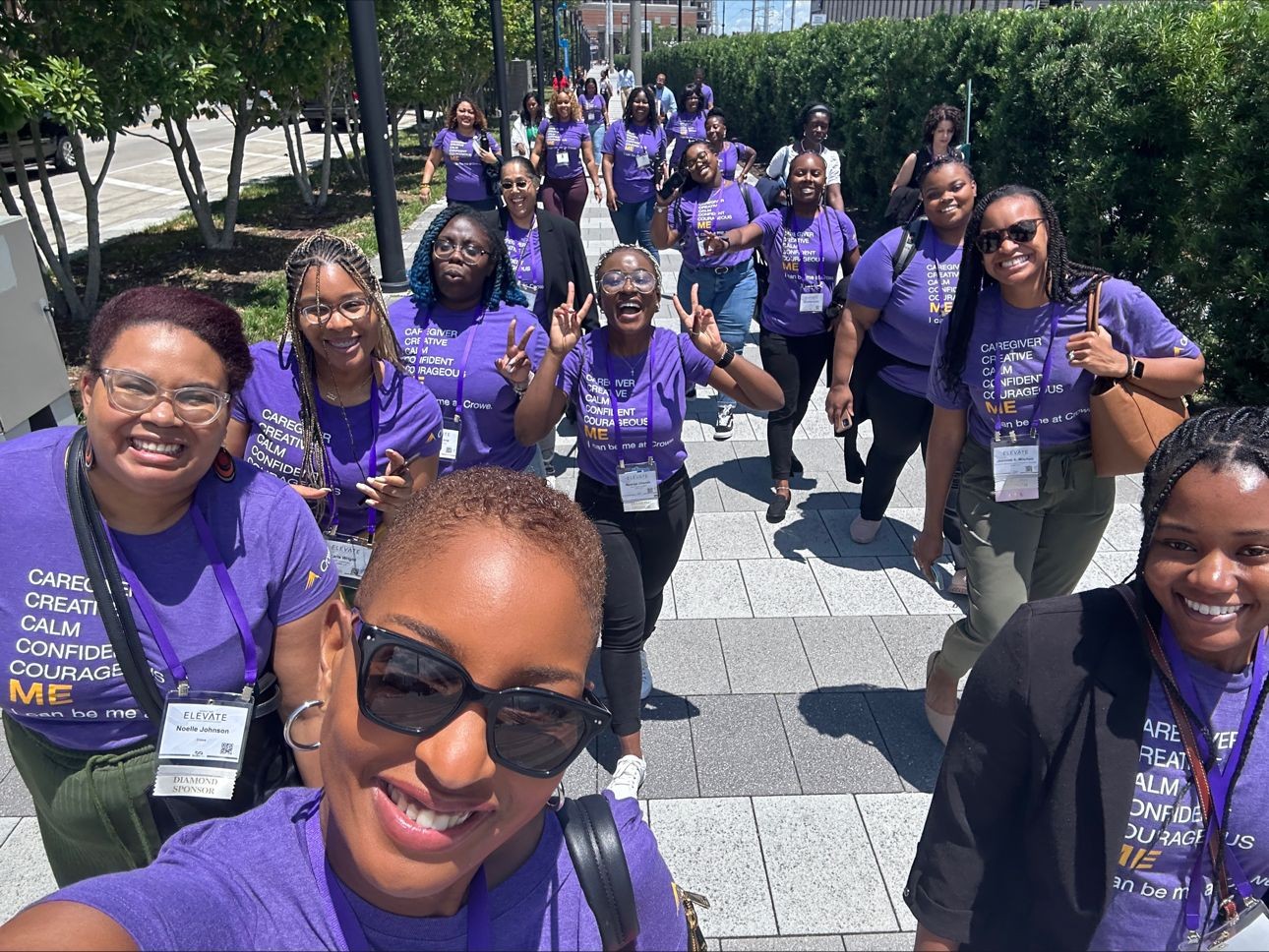Best Workplaces, Employee Well-being, Leadership & Management
The top employers match best-in-class offerings from paid leave to childcare support, while also ensuring every employee has a manager that cares about them.
Most companies, when looking to support working parents, start by evaluating their benefits.
The United States remains the only wealthy nation in the world without a national policy for paid leave for parents. The Family and Medical Leave Act (FMLA) only guarantees up to 12 weeks of unpaid leave for employers with 50 or more employees — and the law only covers 56% of Americans.
However, generous paid leave isn't the only issue that matters to employees with parenting responsibilities. Working parents also want meaningful work, career development opportunities, and a network of caring and supportive colleagues.
Great Place To Work® surveyed more than 612,000 employees with parenting duties to determine the Best Workplaces for Parents™ List for 2023. In the data, working parents were more likely to thrive when generous benefits and leave policies were matched with another key ingredient: having a great manager.
What benefits make a difference
To understand how great workplaces compete on benefits like paid leave, Great Place To Work identified the top 100 companies and the bottom 100 companies out of the organizations eligible for this year’s list.
For the top 100, companies average 78 paid days of maternity leave and 60 paid days of paternity leave. At the bottom 100 companies, employers offered half that average: 40 days paid for moms and 30 days paid for dads.
Interestingly, mothers at both the top and bottom 100 companies are taking similar amounts of leave — but at the top 100, that leave is much more likely to be paid. On average, 100% of the leave taken by mothers in the top 100 companies is paid, while only about 88% of the leave taken by mothers in the bottom 100 companies is paid.

Remote work perks didn’t help companies stand out from the pack, with almost all companies in both the top 100 (98%) and bottom 100 (97%) offering some form of remote or hybrid work.
Other benefits offered a bigger competitive advantage: In the top 100, 53% more of the companies offer childcare subsidies compared to companies in the bottom 100, and 23% more offer flextime options for employees.
Making this year’s list required more than simply being one of the top 100 companies offering the most generous benefits. Great Place To Work found that working parents reported more positive experiences when companies matched generous benefits with a high level of trust across the organization.
The importance of managers
In particular, having a great manager increased the likelihood for working parents to thrive at work.

At companies on the list, 87% of working parents say management delivers on its promises, compared to just 56% of parents at a typical U.S. company. When managers keep their word, employees are more likely to thrive. When managers deliver on promises, there is a statistically significant increase in workplace agility and overall well-being for parents.
Having a good manager also increases the likelihood working parents will give extra effort on their work as well as the likelihood they believe their work is meaningful.
At the Best Workplaces for Parents, 87% of parents say management genuinely seeks and responds to suggestions and ideas, compared to just 58% of parents at a typical U.S. company.
Managers have consistently been shown to have a big impact on the employee experience — and on employees’ life outside of work. If your manager has a bigger impact on your mental well-being than your therapist or doctor, having a competent manager is extremely important for employee well-being — whether employees have childcare responsibilities or not.
Investing in managers
How are the Best Workplaces building leadership systems to ensure every employee with parenting responsibilities has a great people leader? Here are some tips taken from winning workplaces:
1. Don’t ignore the importance of weekly one-on-one meetings.
If managers don’t have regular check-ins with their direct reports, how can they develop the relationships needed to effectively manage them?
“If you’re not having one-on-one conversations with your folks about what’s important to them, their performance, what they want to grow into, they can’t grow,” says Marcus Erb, vice president, data science and innovation at Great Place To Work. “And fundamentally, they’ll never experience a fair sense of growth.”
2. Extend support to the whole family unit.
Working parents are inevitably affected by social, global, and personal events that happen outside of work. These events, from personal tragedy to collective trauma, must be understood and resourced.
The Best Workplaces often extend support, such as counseling through an employee assistance program (EAP), to the entire family unit. At Comcast NBCUniversal, the No. 7 large company on this year’s list, an EAP offers personal counseling 24/7 to employees and their household members with up to 10 free sessions per individual annually.
Help managers have the flexibility to respond to individual needs.
Working parents are not just those with infants and toddlers. Employees with caregiving responsibilities also include parents with teenagers preparing for college, employees with adult children with special needs, parents who want to adopt, and parents looking for fertility support and treatment.
At American Express, No. 14 on the list, college-bound dependents can take advantage of a college coach, who provides free, personalized college admissions counseling. Services include college matching, essay support, interview preparation, tuition and financial aid counseling, and more. American Express also offers a scholarship program to recognize academic excellence and help employees’ fund their children’s undergraduate education.
The company doesn’t only offer help for high school students. When the COVID-19 pandemic was found to negatively impact the learning outcomes for grade school children, the company launched a benefit offering subsidized virtual tutoring in the fall of 2022.
At Comcast, efforts to make parenting benefits more inclusive show up in their MyParenthood program, which offers adoption assistance, fertility support, and other tools that are personalized to meet employees’ needs.
3. Hold managers accountable for how they support parents.
If your company values a set of behaviors, there should be measurement systems in place to ensure those behaviors are being exhibited across the organization.
Conduct employee surveys and examine the results for each manager and their cohort of direct reports. Look for experience gaps across different demographic groups, such as ethnic background, gender, or job level.
What does the data say about how working parents feel on different teams in your organization? Do parents on different teams take the same amount of available leave? If there are gaps, look to groups that outperform the average for clues about how you can improve the experience of every employee.
If one group of employees is having a great experience, that likely means you can scale what works for them to the rest of your workforce.
Make a list
Think your workplace deserves special recognition? Benchmark the experience of your working parents with Certification™.











